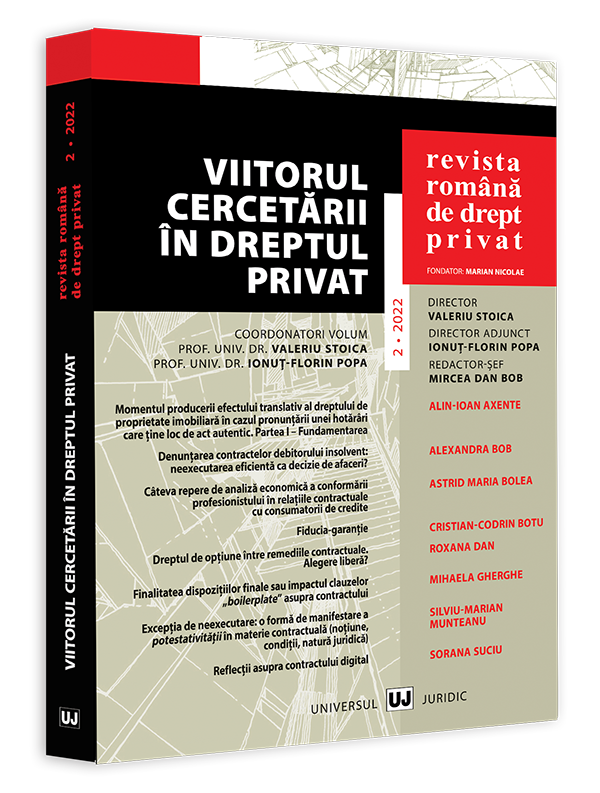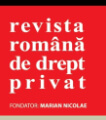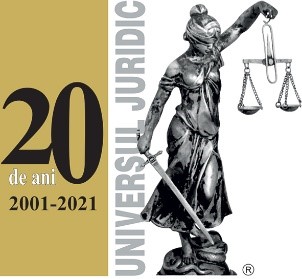No. 2 (2022): THE FUTURE OF PRIVATE LAW RESEARCH

The last few years, as they could be reflected in the pages of the Romanian private law magazine, probably the most serious magazine in the area of Romanian private law, attest, unfortunately, to some form of unilateralism. This feature is due to the presence, perhaps too frequent, of the same authors and, implicitly, to the lack of new authors that sufficiently prove the consistency of their interest in private law. We wondered if this situation has its cause in a particular lack of inclination of lawyers in Romania towards research or if it is somehow a question of a wrong policy of the editorial office. In order to be able to reach a conclusion, we proposed to search and promote the novelty, by inviting some young researchers to write (some at the very beginning of this path, others already tested by the pages of the magazine). We believe that our approach paid off, because the idea was received by several doctoral schools (Bucharest, Cluj-Napoca, Timișoara) that offered an extremely interesting and varied selection base. The front volume is a selection of some of the ongoing doctoral studies and is intended to be a small manifesto for the promotion of research in Romanian private law. Whether this research has a future or not is a question to which we invite you, the readers, to answer and we thank you for the essential contribution to the survival of the research: reading the magazine!
The authors of the essays in this volume come from representative legal professional environments. They are magistrates, lawyers, notaries, legal advisors, academics with concerns worth cultivating. They all belong to Romanian doctoral schools (without implying that there would be no research outside this institutional framework, only that this fact simplified our selection effort!), and the published works are sometimes part of their doctoral research, sometimes simply a topic of interest to the author.
The themes addressed in the volume are extremely varied, without covering the entire range of central subjects of private law. For example, the economic analysis of the contract is used for particular areas, such as: the termination of the contracts of the debtor in insolvency, as a form of non-execution of the contract or as an opportune business decision; compliance of the professional in the contracts concluded with credit consumers. The frequent theme of promises of alienation is also the subject of relevant essays, dedicated, for example, to the remedy of the court decision that takes the place of a property transfer contract or regarding the correlation (respectively the competition) between the implied inalienability clause in the promises of real estate alienation and insurance measures within the criminal process. The subject of the qualification of the contract is also addressed, both in a general study and in another, dedicated to the electronic contract. The generous topic of remedies for non-performance is also exploited in several studies dedicated to the right to choose between contractual remedies, the exception of non-performance and liquidated damages in case of non-performance of the obligation to perform. At least two studies address the issue of special clauses, such as "boilerplate" clauses and "credit acceleration" clauses. They are joined by a series of inter-domain studies that deserve the reader's full attention: about the guarantee function that the trust contract can fulfill, about the relationship between the subjective right and the material right to action, about the "impossibility" of the transfer of possession, respectively about the nature of the obligation to ensure the transmission of ownership over another's property.
On the other hand, as will be seen, the essays themselves are not equal in many respects. Their inequality does not necessarily mean a lower or greater inclination of the authors for research, but rather an oscillating preoccupation between theoretical and practical, respectively a proportional approach to them. In all cases, we tried to intervene as little as possible in the content of the papers, to leave the evidence of research fresh and to offer a relatively correct perspective on a sector of research in our country.








